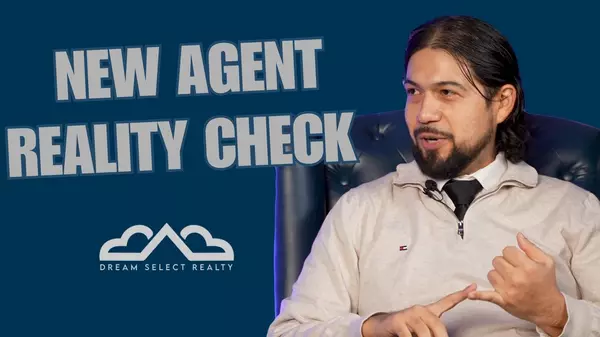Protect Your Investment: Legal Must-Knows for Long Island Real Estate

Welcome to Dream Select Realty’s guide on the most important legal considerations for real estate investors in Nassau and Suffolk Counties. Whether you’re a first-time investor or have a growing portfolio, understanding New York’s laws is crucial. Buying and renting property in Long Island can bring many rewards, but it also comes with responsibilities and potential pitfalls.
This article will explore key legal areas that affect real estate investors on Long Island. You will learn about New York State landlord-tenant laws, property tax implications for investors, and zoning and land use regulations specific to Nassau and Suffolk Counties. By the end, you’ll have a clear sense of what to expect and how to protect your investments. Dream Select Realty is here to make sure you have the knowledge and resources you need for success.
New York State Landlord-Tenant Laws
Landlord-tenant laws set the rules for how landlords and tenants interact. These laws cover everything from security deposits to eviction procedures. As an investor, you need to stay informed about these regulations to avoid conflicts and legal troubles.
Understanding Security Deposits
In New York State, you can collect a security deposit to cover damages or unpaid rent. However, there are restrictions on how much you can charge and how you must handle these funds. Typically, the deposit cannot exceed one month’s rent if the property is used as a primary residence. If your tenant qualifies as a New York resident, you must place the security deposit in a separate bank account that earns interest if it’s a property with six or more units.
You should keep records of all security deposits, including the amount collected, the date collected, and any bank details associated with it. When the lease ends, you’re obligated to return the deposit within a certain number of days (usually 14 days if the rental is covered by the Housing Stability and Tenant Protection Act), minus any documented deductions for damages.
Rent Regulations
Some areas in New York have rent stabilization or rent control laws, but these are more common in New York City than in Long Island. In most of Nassau and Suffolk Counties, rent prices can be set according to market demand. Still, if you own a multi-family building or older property, it’s a good idea to confirm whether any local or state rules might affect your ability to set and raise rents.
Lease Agreements
Lease agreements in New York must adhere to state guidelines. This means your lease can’t include illegal provisions, such as waiving your responsibility for repairs or violating tenants’ legal rights. Make sure your lease states the rent amount, due dates, security deposit details, and other rules like whether pets are allowed or not.
Many landlords use standard leases, but customizing yours can help address unique aspects of your property, such as use of shared amenities or special rules about parking. Keep in mind that adding clauses that violate the law or restrict tenant rights can lead to disputes and even legal action.
Maintenance and Habitability
You must ensure your rental units are safe and habitable. This includes providing heat, hot water, and a structurally sound environment free from serious hazards like mold, pests, or leaks. Regular inspections and prompt repairs are key parts of your landlord duties.
If a tenant complains about a habitability issue, act quickly. Failing to fix problems can result in rent withholding by the tenant, government fines, or lawsuits. Keeping a good relationship with your tenants and addressing maintenance requests right away can prevent costly conflicts.
Eviction Procedures
Evictions in New York have strict legal steps. You can’t simply ask a tenant to leave or change the locks if they don’t pay rent or break the lease. The eviction process starts with a legal notice, such as a Notice to Cure (for lease violations) or a Notice to Quit (for nonpayment). If the tenant doesn’t fix the problem or leave voluntarily, you must file a case in Housing Court or the local court system.
Evictions can be time-consuming and expensive, so it’s wise to work with an attorney who understands Nassau and Suffolk County laws. Communicating with tenants about late payments or lease breaches early on can sometimes help avoid a lengthy court battle.
Property Tax Implications for Investors
Property taxes play a big role in your financial returns. Long Island’s property taxes are among the highest in the country, so you need to understand how these costs can impact your bottom line. Knowing how taxes work also helps you plan your investment strategies effectively.
How Property Taxes Are Calculated
Property taxes in Nassau and Suffolk Counties are typically based on the property’s assessed value. Local tax assessors determine this value, which may be different from the market value. Tax rates vary by municipality, school district, and other special districts (like fire or library). When these rates are combined, you get your total property tax bill.
If you disagree with the assessed value, you can file a tax grievance to lower your taxes. Homeowners and investors often hire specialized tax grievance companies or attorneys to handle these appeals.
Tax Deductions for Investors
Owning investment property brings certain tax advantages. You can often deduct mortgage interest, property insurance, maintenance costs, and depreciation on your federal tax return. Depreciation is particularly valuable because it allows you to reduce taxable income based on the wear and tear of the building over time, even if the property is appreciating in real market value.
However, these rules have specific guidelines, so it’s smart to consult an accountant experienced with real estate investors. Overlooking a deduction or mislabeling expenses can lead to an IRS audit or missed financial benefits.
Tax Assessments and Revaluations
Local governments sometimes reassess property values, which can raise or lower your tax bill. Keeping track of any municipal reassessment programs in Nassau and Suffolk helps you plan ahead. If your property’s assessment jumps suddenly, you might face a spike in taxes, which can affect your cash flow if you rely on rental income to cover expenses.
Special Taxes and Fees
Depending on where your property is located, you might face special district taxes for schools, road maintenance, or other community needs. Some areas also charge a transfer tax or “mansion tax” if you buy or sell properties above a certain price threshold. Familiarize yourself with all potential taxes and fees so you don’t get blindsided when it’s time to pay.
Zoning Laws and Land Use Regulations in Nassau and Suffolk
Zoning and land use laws determine what you can build or do with your property. From single-family homes to multi-family buildings, local codes can either promote or limit your investment plans. Many towns in Nassau and Suffolk have their own rules, so it’s important to understand the unique requirements for each location.
Why Zoning Matters
Zoning defines whether an area is residential, commercial, industrial, or mixed-use. It also dictates details like building height, lot size, and how many units you can have on a piece of land. If you buy a property hoping to convert it to a multi-family home, you need to confirm that local zoning permits this.
Ignoring zoning rules can lead to fines, forced changes to the property, or even demolition if the town deems your building illegal. Always check the local building department’s records to see what’s allowed before you buy.
Variances and Special Permits
Sometimes you’ll want to do something not explicitly permitted by current zoning laws—like building an accessory dwelling unit (ADU) or running a home-based business. In these cases, you might apply for a variance or a special permit. You’ll present your case to a zoning board or planning commission, explaining why your project won’t harm the community.
Securing a variance can take time and money, and there’s no guarantee you’ll succeed. Hiring a land use attorney or zoning expert can increase your chances by preparing a thorough application and addressing community concerns.
Environmental Restrictions
Suffolk County has areas with wetlands, protected pine barrens, and coastal zones subject to extra regulations. If your land falls into one of these categories, you might need permits from the state Department of Environmental Conservation (DEC) or federal agencies like the Army Corps of Engineers. These permits ensure that development doesn’t harm wildlife habitats or fragile ecosystems.
Failure to follow environmental rules can halt construction, cost large fines, and harm your reputation as an investor. If you’re considering a waterfront or rural property, always research any environmental restrictions in advance.
Land Use Planning and Community Opinions
Long Island residents often have strong opinions about developments that change the character of their neighborhoods. Community boards may hold public hearings to discuss proposed projects. You might face opposition if locals think your plan will increase traffic, strain school resources, or alter the area’s atmosphere.
To smooth the process, communicate openly with neighbors. Show how your project benefits the community, whether by enhancing property values, providing rental housing, or revitalizing an abandoned building. Goodwill can go a long way in winning local support and reducing delays.
Practical Tips for Staying Compliant
Work with a Real Estate Attorney
Having a knowledgeable real estate attorney on your side is one of the best moves you can make. These professionals can review leases, help with evictions, advise on property taxes, and represent you in zoning hearings. An attorney with local experience in Nassau or Suffolk County will know the area’s unique rules.
Use Clear, Written Agreements
Whenever you’re dealing with tenants, contractors, or business partners, put everything in writing. Detailed contracts help you avoid misunderstandings and can serve as evidence if a dispute arises later. For example, a well-crafted lease explains rules about late rent, property maintenance, and the landlord’s access for repairs.
Stay Organized with Documents
Keep digital and physical copies of important paperwork. This includes property deeds, permits, leases, inspection reports, and tax records. Having your documents in one place saves time if you ever face a legal challenge or need to prove compliance with regulations.
Maintain Open Communication
Talking to tenants, neighbors, or local officials early on often prevents small issues from becoming big legal battles. If a local zoning official has questions about your building plans, meeting in person to clarify details can build trust. If a tenant falls behind on rent, sending a polite but firm reminder early can lead to a payment plan and avoid eviction.
Monitor Changes in the Law
State and local laws can change. For instance, rent protection policies might expand or environmental rules may tighten. Staying informed through news outlets, local real estate groups, or professional associations ensures you’re never caught off guard. Dream Select Realty also keeps up with emerging legal changes, so we can alert our clients to significant updates.
How Legal Considerations Affect Your Investment Strategy
Legal details might not be the most exciting part of real estate, but they can make or break your deal’s profitability. Ignoring landlord-tenant laws might lead to lawsuits or fines, while failing to factor in high property taxes could kill your cash flow. Zoning issues can even stop you from adding extra units or turning a single-family house into a multi-family rental.
Taking a proactive, informed approach is the best way to mitigate risks and protect your bottom line. Once you understand the laws, you can use them to your advantage. For example, researching zoning might reveal a property that’s undervalued because most buyers don’t realize they can get a variance for additional units. Knowing New York’s landlord-tenant laws could help you craft fair yet protective leases that appeal to good renters. Tracking property tax assessments might let you protest or lower your tax bill, boosting your returns.
Case Study: Avoiding a Zoning Pitfall
Imagine you bought a large single-family house in Suffolk County with the intent to split it into two separate rental units for extra income. You move forward with renovations, only to find out partway through that local zoning laws do not allow two-family homes in your neighborhood. The town issues a stop-work order, leaving you with unfinished construction and no way to collect rent.
In this scenario, you could be stuck with a half-renovated property, paying a mortgage, and unable to rent as you originally planned. If you had researched the zoning in advance or consulted a land use attorney, you would have known that a variance or a different neighborhood was needed for a legal multi-family setup. This simple oversight can cost time and money, or force you to sell at a loss if you can’t get the needed approvals.
Case Study: Navigating Landlord-Tenant Laws
Consider a new landlord who doesn’t realize that New York law limits security deposits to one month’s rent for most residential leases. The landlord collects a two-month deposit, thinking it provides extra security. When the tenant moves out, the landlord keeps the entire sum claiming property damage—but never provided itemized statements or proof.
The tenant sues in small claims court, citing state law. The landlord loses the case and must return the deposit with possible interest and penalties. Plus, the landlord gains a reputation for unlawful practices. A quick review of New York’s deposit rules and proper documentation would have prevented this outcome. An organized approach with itemized receipts, clear lease language, and photos of any damage can protect you from disputes.
How Dream Select Realty Can Help
Dream Select Realty provides more than just property listings. We help you navigate Long Island’s complex legal landscape. Our team stays up-to-date on local laws, zoning changes, and property tax developments. We can connect you with attorneys, tax advisors, and other professionals who specialize in real estate, saving you the hassle of searching on your own.
We also help you evaluate investment properties with an eye toward legal compliance. If a property’s location or condition suggests zoning challenges or unusual tax burdens, we’ll let you know before you buy. Our aim is to guide you toward smart deals that fit your goals without hidden legal traps.
Conclusion
Investing in Long Island real estate can be lucrative, but only if you understand the laws that apply to your properties. New York state landlord-tenant laws shape how you manage renters, property tax rates affect your profitability, and local zoning codes determine what you can do with each building. Staying informed and prepared helps you avoid costly mistakes and maximize returns.
At Dream Select Realty, we believe that knowledge is power. By learning about these legal considerations, you position yourself for success in the dynamic Nassau and Suffolk real estate markets. When you need extra support—whether it’s finding an attorney, appealing a property assessment, or checking zoning on a potential purchase—we’re here to assist. Reach out with any questions, and let’s keep your real estate journey smooth and profitable.
Recent Posts











